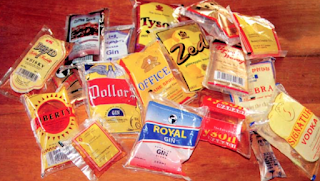It is estimated that Ugandans drink, on average nearly 24 litres of pure alcohol per annum. The same study reported that in Rwanda and Burundi the annual consumption was about 22.0 litres per person and just under 19 litres per person in Kenya and slightly less in Tanzania.
The majority of alcohol consumed in Uganda is distilled spirits. The health risks from such high levels of alcohol consumption are worrying. The very high percentage of home distilled spirits exacerbates the health risks as the home distillation is unregulated and the risk of adulteration is high. There is significant health data to show that alcohol poisoning is a significant cause of early death and also a major cause of blindness where the spirits contain methanol.However, despite these significant concerns, especially amongst the male population and the undoubted negative impact on Uganda’s economy and society, there does not appear to be any laws to curtail unregulated production. Indeed, when visiting rural villages, I have noted that most will include a still which is being used openly within the village and so, in many ways, “normalising” home distillation and have seen children preparing cassava for use in the still.
Villagers young and old preparing cassava for the still
I have also seen that regulated alcohol is widely available and there appear to be few controls on purchase and consumption. When I first arrived, I wondered what the small empty plastic sachets that appeared to litter the roadside were. I quickly learnt that they had contained Ugandan gin and vodka. These sachets contain 50ml or 100ml of alcohol and can be purchased for a few shillings.
The District Councils in the West Nile are considering introducing legislation to ban the sale of these sachets as it is believed that they are a significant factor in the area’s drinking culture. However, unless such legislation is country-wide and mindful of the fact that only 11% of alcohol consumption is from the regulated market, it is difficult to see how such a ban could make a significant positive impact.



No comments:
Post a Comment